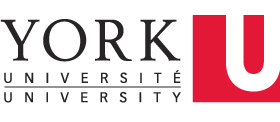Finding your feet in a new area of study is hard work. Students have to spend a lot of time carefully listening before they can even contemplate entering into an academic dialogue. And, to add to their uncertainty, most of what they end up studying concerns topics wholly beyond their own scope of experience. Generally speaking, instructors address the content of most courses from a particular perspective. To supplement that perspective, they often provide a group of readings that they believe will anticipate the directions in which the students’ minds will move. But anticipating every student’s every possible mental turn is an impossible task. And, yet, without the widest possible range of viewpoints, students can find it difficult to enter into a meaningful dialogue with professors on subjects that remain beyond their own direct experience. Because most professors demand more of their students than rote, students need to find a way of moving from learning passively in the lecture, to writing actively and critically when it comes time to composing their research papers.
Developing the skills necessary to access a broad range of viewpoints on the important issues covered in the course becomes essential. Scholarly material written outside the confines of the classroom can serve as a foundation upon which students build independent, yet credible and defensible, viewpoints. Students who have the motivation and skill to unearth such material are able to critically consider it in light of the lectures, tutorials, and course readings. Then they can reject or incorporate it into their own view based on what they already know. This allows them to begin to constuct their own knowledge systems and take ownership of the field and the course content. In short, they become active and engaged. Some even begin to really care about what they are studying.
One of the most important things university students need to hear is that no one is born knowing how to do library research. When the average first year student arrives in the library she sees her fellow students retrieving books, using the computers, photocopying journals, and conferring with peers. When she timidly approaches the Libraries’ website for the first time, and can’t figure out what to do or where to go, she will inevitably begin to wonder what’s wrong with her: Why can’t she do what everyone else seems to be able to do? But the truth is that those peers around her, seemingly engaged, have either had a library instruction workshop – or they don’t have a clue what they are doing. They only look like they know what they are doing. Students will require both exhortation and instruction if they’re going to become successful researchers, because computer literacy isn’t information literacy.
Students who have the benefit of attending a library research workshop, or who have the opportunity of hearing a librarian deliver a guest lecture in their course, are better equipped to attain higher grades and, more importantly, engage themselves as active learners in the courses they are taking. Because there is a direct relationship between the quality of the material students consult during the research process, and the quality of the papers that they ultimately write, it is easy to see why solid library research skills are just as important as solid writing skills.
